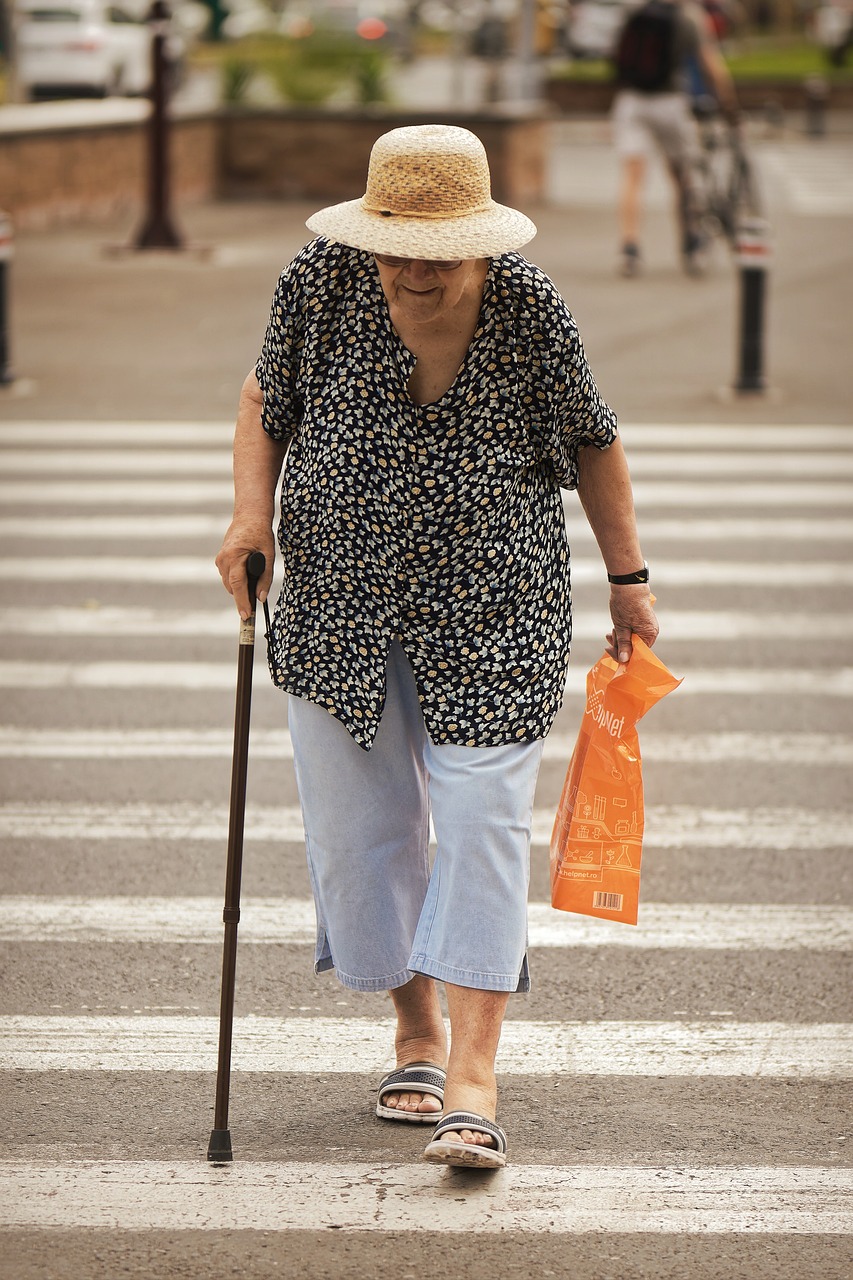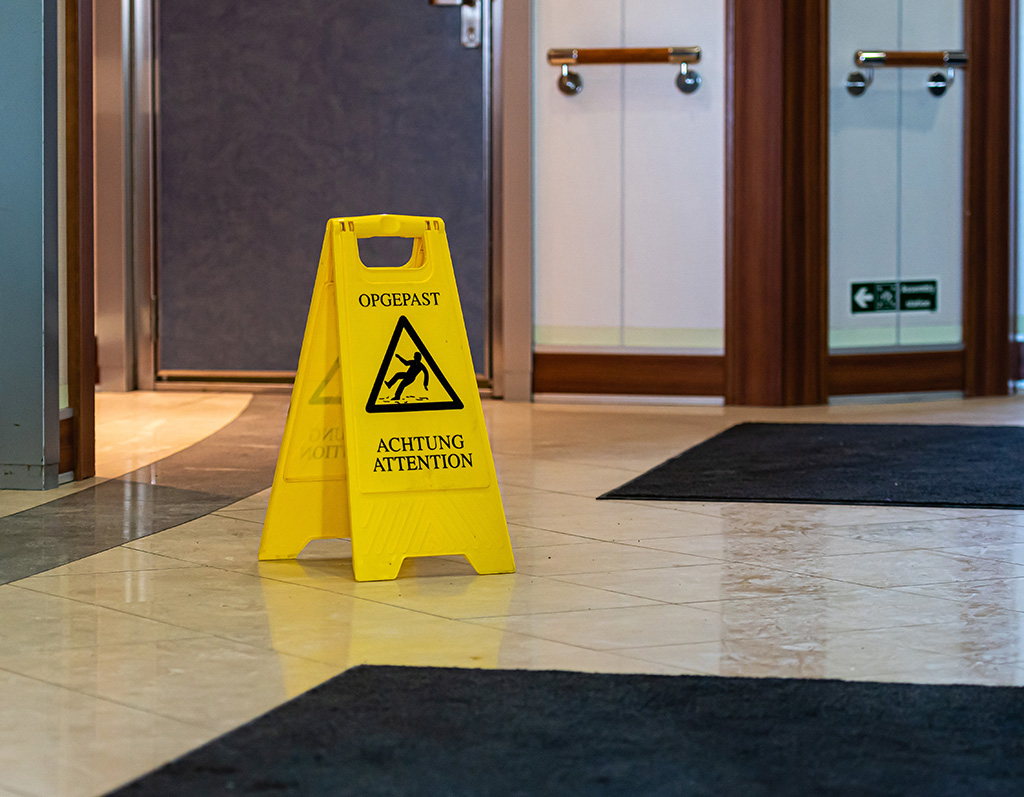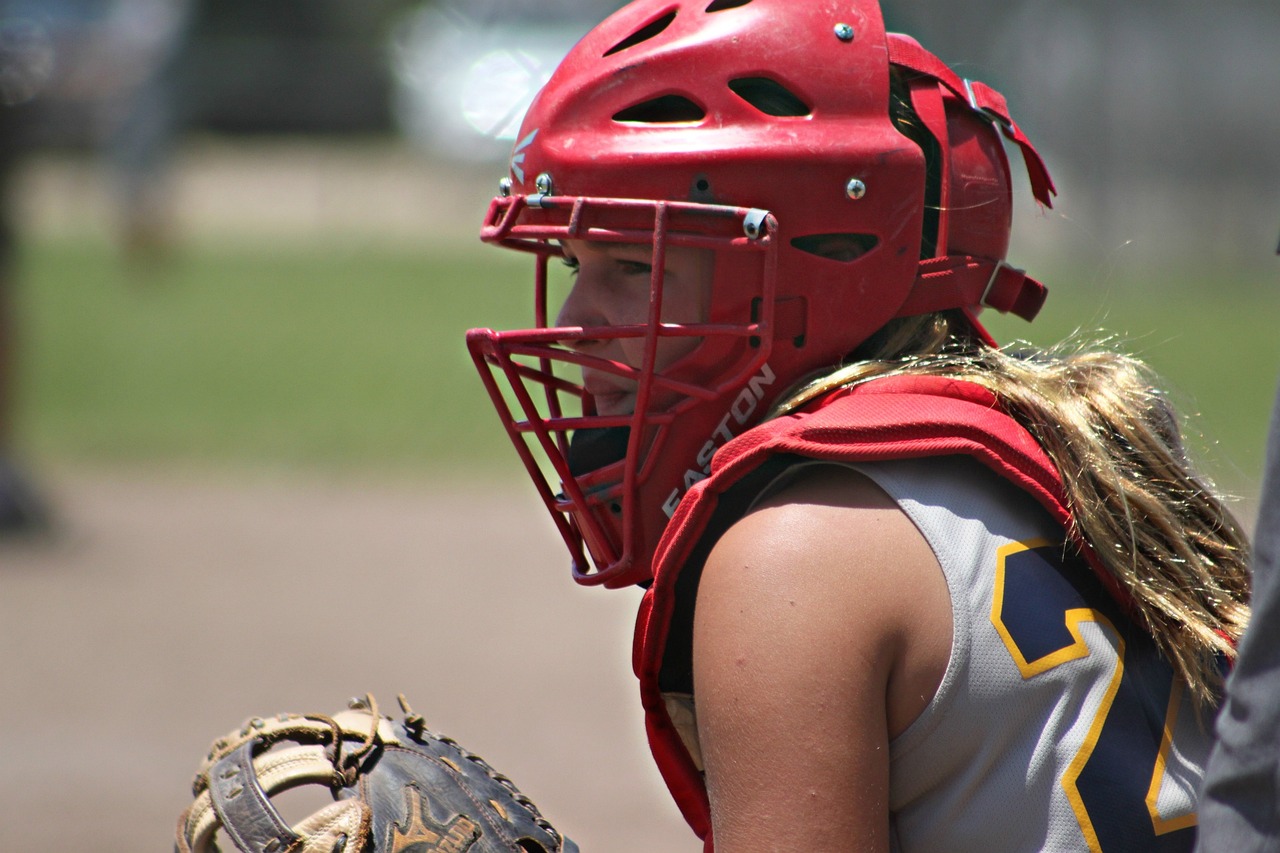Losing a loved one is undoubtedly one of life’s most difficult challenges, especially when their passing raises suspicions of wrongful death due to someone else’s negligence. In such distressing times, knowing what steps to take can provide some much-needed clarity and direction. In this blog post, we’ll guide you through the essential steps to take in the aftermath of a suspected wrongful death, offering support and practical advice in a friendly and empathetic tone.
1. Seek Immediate Support and Guidance
Understand the importance of seeking emotional support from friends, family, or professional counselors to help you cope with the overwhelming emotions that may arise.
2. Gather Evidence and Documentation
Learn how to gather crucial evidence and documentation related to the incident, including photographs, witness statements, medical records, and any other relevant information that may support your case.
3. Report the Incident to Authorities
Discover the importance of reporting the suspected wrongful death to the appropriate authorities, such as law enforcement agencies or regulatory bodies, to ensure that an official investigation is conducted.
4. Consult with a Qualified Wrongful Death Attorney
Understand the significance of consulting with a knowledgeable and compassionate wrongful death attorney who can provide expert guidance, evaluate your case, and explain your legal rights and options.
5. Understand Legal Procedures and Timeframes
Gain insight into the legal procedures and timeframes involved in filing a wrongful death claim, including the statute of limitations and any other relevant deadlines that must be adhered to.
6. Preserve Your Rights and Avoid Communication
Learn how to protect your legal rights by refraining from communicating with insurance companies or other parties involved in the incident without first consulting with your attorney.
7. Take Care of Yourself and Your Family
Remember to prioritize self-care and the well-being of your family during this challenging time, seeking support from loved ones and practicing self-care activities to help you navigate the grieving process.
By following these essential steps with care and diligence, you can ensure that your loved one’s memory is honored and that you pursue justice and accountability for their wrongful death. Remember, you’re not alone, and seeking guidance from experienced professionals can provide invaluable support as you navigate this difficult journey.
The Vital Role of Legal Representation: Guiding You Through Wrongful Death Claims with Compassion and Expertise
In the wake of a wrongful death, navigating the complexities of legal proceedings can feel overwhelming. However, having the right legal representation by your side can make all the difference in seeking justice and closure for your loved one. In this blog post, we’ll delve into the crucial role that legal representation plays in wrongful death claims, highlighting the importance of compassionate guidance and expert advocacy in a friendly and approachable tone.
1. Understanding Your Rights:
Explore how a qualified wrongful death attorney can help you understand your legal rights and options, empowering you to make informed decisions every step of the way.
2. Navigating Complex Legal Procedures:
Learn how legal representation can guide you through the intricate legal procedures involved in filing a wrongful death claim, ensuring that your case is handled with care and diligence.
3. Expert Evaluation of Your Case:
Discover the value of having an experienced attorney evaluate the merits of your case, identifying key evidence and potential legal strategies to strengthen your claim.
4. Negotiating with Insurance Companies:
Understand the role of legal representation in negotiating with insurance companies on your behalf, advocating for fair compensation for your losses while protecting your rights.
5. Providing Emotional Support:
Recognize the compassionate support that a dedicated attorney can offer during this difficult time, providing a listening ear, empathetic guidance, and reassurance when you need it most.
6. Advocating for Justice and Accountability:
Explore how legal representation serves as a powerful advocate for justice and accountability, fighting tirelessly to hold responsible parties accountable for their actions.
7. Offering Peace of Mind:
Experience the peace of mind that comes with having a skilled attorney handle the legal aspects of your wrongful death claim, allowing you to focus on healing and honoring your loved one’s memory.
With the right legal representation by your side, you can navigate the complexities of wrongful death claims with confidence and peace of mind. Trust in the expertise and compassion of a dedicated attorney to guide you through this challenging journey toward justice and closure.
April Fools’ Day Pranks: Laugh Responsibly, Prioritize Safety
April Fools’ Day, a day synonymous with pranks and practical jokes, is eagerly anticipated by many each year. However, amidst the laughter and harmless fun, it’s essential to emphasize the importance of prioritizing safety, especially in the context of personal injury law. While it’s tempting to engage in elaborate pranks, one must always consider the potential risks and consequences to avoid any accidents or legal liabilities.
The Fine Line Between Fun and Liability:
In the realm of personal injury law, there exists a fine line between harmless pranks and actions that can result in serious injuries or legal repercussions. What may seem like a harmless joke to some could lead to physical harm, emotional distress, or property damage to others. It’s crucial to recognize this distinction and act responsibly when planning and executing April Fools’ Day pranks.
Legal Implications of Unsafe Pranks:
Engaging in reckless or unsafe pranks can have serious legal consequences. In the event that a prank results in injury or property damage, the perpetrator may be held liable for negligence. This could lead to legal action, including lawsuits and financial compensation for the injured party. Additionally, if a prank causes emotional distress or constitutes harassment, it may also result in legal ramifications.
Prioritizing Safety:
While April Fools’ Day is a time for laughter and lightheartedness, safety should always be the top priority. Before executing any prank, consider the potential risks and take steps to minimize them. Avoid pranks that involve physical harm, dangerous objects, or situations that could lead to accidents. Instead, opt for harmless jokes that bring joy without putting anyone at risk.
Tips for Safe Pranking:
Know your audience: Consider the sensibilities and preferences of the individuals involved before planning any pranks.
Avoid dangerous props: Refrain from using sharp objects, trip hazards, or anything that could potentially cause harm.
Respect boundaries: Ensure that your pranks are good-natured and won’t cause undue stress or anxiety to others.
Communicate openly: If you’re unsure whether a prank is appropriate, discuss it openly with the intended target beforehand.
Be prepared to apologize: If a prank goes awry or unintentionally causes harm, take responsibility, and apologize sincerely.
As we celebrate April Fools’ Day, let’s remember that laughter should never come at the expense of safety. By prioritizing the well-being of others and exercising caution in our pranking endeavors, we can ensure that everyone enjoys the holiday responsibly. Let’s keep the fun alive while also respecting the boundaries and safety of those around us. After all, a good laugh is only truly enjoyable when it’s shared without causing harm.
Debunking A Few Medical Malpractice Myths
Some people are misinformed or have distorted beliefs that may not be factual about medical malpractice lawsuits. This may be caused by the sugarcoated news we see in the media. Not all the publicized news we see on TV is true, anyway. Let’s explore a few medical malpractice myths that should be discussed.
Myth #1; Some say there are many ‘frivolous malpractice lawsuits.
Fact: In reality, there’s more negligence happening than lawsuits.
Only a small fraction of those harmed by negligence actually took an action.
Malpractice lawsuits have actually decreased by 8 percent over the past decade.
Myth #2; There is a misconception that malpractice claims lead to premiums for doctors.
Fact: Studies have revealed correlation between malpractice payouts and the premiums paid by doctors.
A study was conducted on the reports of medical malpractice insurance providers.
The findings revealed that these insurers artificially inflated doctors’ premiums and misrepresented the public regarding the nature of medical malpractice claims.
A prior analysis of malpractice insurers indicated that their profits exceeded those of 99 percent of Fortune 500 companies.
Myth #3; Some argue that doctors are leaving their professions.
Fact: The American Medical Association data shows that the number of doctors in the U.S. has been steadily increasing for years, surpassing population growth rates.
Myth #4; Tort reform leads to reduced insurance costs for doctors.
Fact: Despite claims that tort reforms would decrease physicians’ liability premiums, there has been no evidence to support this. While insurers may pay out less in damages when awards are limited, they do not render these savings into premiums for doctors.
Elderly Pedestrians and Personal Injury Law: Safeguarding Our Most Vulnerable
The safety and well-being of pedestrians, in settings are crucial issues in personal injury law. With cities becoming more crowded and streets busier, the risk of pedestrian accidents involving individuals rises significantly. This article delves into the complexities of injury cases concerning pedestrians, highlighting legal protections, challenges, and potential measures to improve their safety.
Exploring the Vulnerability of Elderly Pedestrians
Statistics and Concerns
pedestrians face heightened vulnerability on the streets due to factors. Data shows that they are at a risk of sustaining injuries or fatalities in accidents involving vehicles compared to younger individuals. Their vulnerability stems from factors such as mobility, slower reaction times and a greater likelihood of sustaining injuries upon impact.
Legal Considerations
The landscape surrounding personal injury claims, for pedestrians encompasses several important factors. Laws aim to safeguard the road users leading to specific regulations and legal precedents that specifically address the concerns of elderly pedestrians.
Understanding these intricacies is vital, for safeguarding the elderly and navigating the aftermath of an accident.
Guiding Elderly Pedestrians Through Personal Injury Claims
Obstacles in Legal Procedures
A hurdle in injury cases involving elderly pedestrians is proving negligence. Providing evidence of a drivers or citys fault due to conditions requires data collection and a solid grasp of personal injury law. Moreover the presence of existing health issues among the elderly can complicate claims as defendants might argue that these conditions, rather than the accident itself caused the injuries.
Enhancing Claim Validity
To bolster an injury claim it’s crucial to document all aspects related to the incident. This involves collecting witness accounts securing surveillance footage and obtaining records of sustained injuries. Seeking assistance from an injury attorney experienced in dealing with cases involving pedestrians can significantly influence the outcome by providing expert guidance through legal complexities.
Preventive Actions and Legal Adjustments
Enhancing Urban Infrastructure
Enhancements to infrastructure play a role, in safeguarding elderly pedestrians. This includes implementing crosswalks extending pedestrian signal durations and creating pedestrian zones.
Legal changes focused on improving road safety standards are crucial. These reforms can introduce penalties for drivers who put pedestrians at risk and promote the implementation of pedestrian urban planning practices.
Educational initiatives that target both drivers and pedestrians play a role, in raising awareness about road safety for individuals. Community based programs like volunteer led escort services for pedestrians also play a role in ensuring their safety and well being while out on the streets.
As our society progresses it’s important to adapt our approach to safeguarding all pedestrians, the elderly. By combining advocacy city planning improvements and community assistance we can create an environment, for older members of our community to travel through.
Texting While Walking: A Dangerous Habit with Legal Consequences
Explore the dangers and legal implications of texting while walking from a personal injury law perspective. Learn how distracted walking can lead to accidents, injuries, and complex liability issues.
In today’s fast-paced world, multitasking has become a way of life for many. Texting while walking, a common sight on city streets and pedestrian pathways, might seem like an efficient use of time. However, this seemingly harmless habit can have serious consequences, both physically and legally. From a personal injury law standpoint, understanding the dangers and legal implications of texting while walking is crucial for pedestrians and smartphone users alike.
The Risks of Distracted Walking
Texting while walking diverts attention from the surroundings, significantly increasing the risk of accidents and injuries. Pedestrians engrossed in their phones may not notice oncoming traffic, obstacles on the pathway, or other pedestrians, leading to collisions, falls, or more severe incidents.
Common Injuries Associated with Distracted Walking
Trips and Falls: Uneven surfaces, curbs, and street furniture can easily trip distracted walkers.
Collisions: Walking into objects, other pedestrians, or even moving vehicles can cause injuries ranging from minor bruises to serious head injuries.
Traffic Accidents: Pedestrians stepping into the road without noticing oncoming traffic are at a high risk of being struck by vehicles.
Legal Implications and Personal Injury Claims
In the context of personal injury law, texting while walking complicates liability and negligence issues in accident cases. Personal injury law primarily revolves around the concept of negligence, which refers to failing to act with the level of care that someone of ordinary prudence would have exercised under the same circumstances.
Determining Liability in Pedestrian Accidents
When an accident occurs involving a distracted pedestrian, determining liability involves assessing the negligence of all parties involved. If a pedestrian texting while walking is hit by a vehicle, the driver may be liable if they were speeding or otherwise acting negligently. However, the pedestrian’s actions can also be scrutinized for contributory negligence or comparative negligence, depending on the jurisdiction.
Contributory Negligence: In some areas, if the pedestrian’s distraction contributed to the accident, they might be barred from recovering damages.
Comparative Negligence: Many jurisdictions apply a comparative negligence approach, where the compensation the pedestrian can receive is reduced by a percentage equal to their fault in the accident.
Safety Tips to Avoid Distracted Walking Incidents
Keep Your Phone Away: Store your phone while walking, especially in areas with heavy pedestrian and vehicle traffic.
Be Aware of Your Surroundings: Regularly scan your environment for potential hazards.
Use Headphones Wisely: If you must listen to music or audio, keep one earbud out to stay aware of environmental sounds.
Cross with Care: Only cross streets at designated crosswalks and pay attention to traffic signals.
Frequently Asked Questions (FAQs)
Q1: Can I be held liable if I cause an accident while texting and walking?
A1: Yes, if your distraction contributed to the accident, you might be considered partially or fully at fault under the principles of contributory or comparative negligence.
Q2: What should I do if I’m injured by a distracted pedestrian?
A2: Seek medical attention, document the incident and your injuries, and consult with a personal injury attorney to understand your legal options.
Q3: How can pedestrians protect themselves legally?
A3: Be mindful of your surroundings, adhere to traffic laws and pedestrian signals, and avoid engaging in distractions like texting while walking.
Q4: Are there laws specifically addressing texting while walking?
A4: While not widespread, some jurisdictions have enacted ordinances that fine pedestrians for texting while crossing streets. It’s important to be aware of local laws.
Q5: Can I still recover damages if I was texting while walking and got hit by a car?
A5: Depending on local laws and the specifics of the case, you may recover damages, but your compensation might be reduced if you’re found to have been distracted.
Texting while walking is a modern-day hazard that poses significant risks not only to physical safety but also in the realm of personal injury law. By understanding these risks and taking proactive steps to mitigate them, pedestrians can protect themselves from harm and legal complications. Always prioritize safety and awareness over the convenience of multitasking on the go.
The Hidden Risks of Unreported Slip and Fall Injuries
Immediate Reporting: A Critical First Step
Many individuals may choose not to report a slip and fall incident due to embarrassment, a perceived lack of severity, or a misunderstanding of their rights, especially if the fall occurs at work or in a business establishment. However, failing to report an injury promptly can have several negative implications:
- Loss of Legal Recourse: In many jurisdictions, there are strict timelines for notifying employers or property owners about an injury to maintain eligibility for compensation claims. Delayed reporting can jeopardize one’s ability to seek compensation for medical bills, lost wages, and other damages.
- Difficulty in Proving the Incident: The longer you wait to report a slip and fall accident, the harder it becomes to prove that the incident occurred due to someone else’s negligence. Witnesses’ memories fade, and physical evidence can be cleaned up or disappear, making it challenging to establish the facts surrounding the incident.
Aside from the legal implications, the decision to forego immediate medical evaluation can have dire health consequences. Slip and fall accidents can result in a range of injuries, from minor bruises and sprains to more severe conditions such as fractures, head injuries, and spinal cord damage. Without prompt medical attention, these conditions can lead to chronic pain, long-term disability, or even life-threatening complications. For example:
- Hidden Injuries: Some injuries, like internal bleeding or concussions, may not present immediate symptoms. Delayed diagnosis and treatment can result in complications that are much more difficult to treat.
- Chronic Pain: Injuries left untreated or not properly addressed can develop into chronic pain conditions, significantly impacting quality of life and the ability to perform daily activities.
Reporting a slip and fall injury immediately not only facilitates access to necessary medical care but also serves as a crucial step in documenting the incident. This documentation is vital for several reasons:
- Legal Protection: It provides an official record that can be invaluable in any legal action or insurance claim process.
- Preventive Measures: Reporting incidents can prompt employers or property owners to address hazardous conditions, potentially preventing future accidents.
To mitigate the risks associated with unreported slip and fall injuries, consider the following steps:
- Report the Incident Immediately: Notify the relevant authorities or parties about the accident as soon as possible, regardless of the injury’s apparent severity.
- Seek Medical Attention: Even if injuries seem minor, undergo a thorough medical evaluation to rule out any serious conditions.
- Document Everything: Take photos of the scene, gather contact information from witnesses, and keep a detailed record of your injuries and any medical treatment received.
- Consult a Legal Professional: Consider speaking with a personal injury attorney to understand your rights and the potential for compensation, especially if the fall was due to negligence.
While slip and fall incidents may seem innocuous at first glance, the repercussions of unreported injuries can be far-reaching, affecting one’s health, financial stability, and legal rights. By understanding the importance of immediate reporting and seeking medical attention, individuals can protect themselves from the hidden dangers of these seemingly minor accidents. It’s crucial to recognize that taking prompt action not only safeguards your well-being but also ensures that responsible parties are held accountable, potentially preventing future injuries to others.
Medical Malpractice: Understanding Risks and Rights
Medical Malpractice Defined
Medical malpractice occurs when a healthcare professional deviates from the standard of care expected in their profession, leading to patient harm. This deviation can result from errors in diagnosis, treatment, aftercare, or health management. Understanding the legal criteria and common types of malpractice is crucial for both patients and professionals.
The Scope of the Problem
Recent statistics reveal that medical malpractice is more prevalent than many realize, with certain specialties facing higher risks. The consequences for patients can be devastating, encompassing physical, emotional, and financial turmoil. Through case studies, we gain insight into the pervasive impact of these medical failures.
Striving for Prevention
Preventing medical malpractice requires a concerted effort from healthcare providers and the implementation of robust healthcare policies. Best practices include continuous education, adherence to protocols, and fostering a culture of safety and transparency within healthcare facilities.
Navigating the Legal Landscape
Victims of medical malpractice must navigate a complex legal process to seek justice and compensation. This section outlines the steps involved in filing a claim, the importance of expert testimony, and the challenges inherent in proving malpractice.
Consent and Insurance Implications
Informed consent is a cornerstone of ethical medical practice, and its absence or violation is a critical factor in many malpractice claims. Additionally, understanding the role of malpractice insurance is essential for both patients and healthcare providers, influencing the dynamics of legal claims.
Global Perspectives and Technological Impacts
Medical malpractice is not confined by borders, with international cases highlighting varying legal frameworks and patient protections. Technological advances in healthcare, while promising, introduce new dimensions of liability and ethical considerations.
Advocating for Patient Rights
Empowering patients through education about their rights and the avenues available for recourse is vital. This section emphasizes the importance of patient advocacy and informed decision-making in healthcare.
Towards a Healthier Future
The guide concludes with a discussion on the broader public health implications of medical malpractice and the ongoing efforts towards legal and healthcare reforms. Through education, advocacy, and policy change, there is hope for reducing the incidence of medical malpractice and enhancing patient safety.
FAQs on Medical Malpractice
- How do I know if I’ve been a victim of medical malpractice?
- What is the statute of limitations for filing a medical malpractice lawsuit?
- Can I file a malpractice lawsuit without a lawyer?
- How are medical malpractice settlements calculated?
- What is the difference between medical malpractice and medical negligence?
- How does the legal process work in medical malpractice cases?
In conclusion, medical malpractice is a multifaceted issue that demands attention from healthcare professionals, legal experts, and patients alike. By fostering an environment of safety, accountability, and transparency, the healthcare sector can move towards minimizing the occurrence of malpractice and improving patient care standards. The journey towards reform is ongoing, and every stakeholder has a role to play in shaping a safer healthcare future.
Don’t Miss the Game: Understanding the Clock on Sports Injury Claims
Hey there, fellow sports enthusiasts! We’re diving into a topic that might not be as thrilling as a buzzer-beater shot or a game-winning goal, but trust me, it’s just as crucial. We’re talking about the statute of limitations for sports injury claims, and why timing is absolutely critical in this game.
Picture this: You’re out on the field, giving it your all, when suddenly, bam! You’re sidelined by an injury. It’s frustrating, it’s painful, and it might even be someone else’s fault. That’s where the legal game comes into play.
Now, here’s the thing about sports injury claims: they’re like a ticking time bomb. Every state has its own set of rules about how long you have to file a claim after getting injured. Miss that window, and you might as well be sitting on the bench for good.
So, why does timing matter so much? Well, think of it like this: memories fade, evidence disappears, and witnesses scatter like leaves in the wind. The longer you wait to file a claim, the harder it becomes to prove your case. It’s like trying to make a comeback when you’re down by twenty points with only a minute left on the clock – not impossible, but definitely not ideal.
Now, I know what you’re thinking: “But I’m tough! I can tough it out and deal with the legal stuff later.” Trust me, I get it. You’re a fighter, a competitor, and you don’t want anything to slow you down. But here’s the reality check: waiting too long to file a claim could cost you big time. You could miss out on compensation for medical bills, lost wages, and pain and suffering – all because you didn’t play by the rules.
So, what’s the game plan? Simple: know your state’s statute of limitations for sports injury claims, and act fast. Don’t wait until the final buzzer to make your move. Talk to a legal pro, gather your evidence, and get the ball rolling as soon as possible.
Remember, in the game of sports injury claims, timing is everything. Don’t let the clock run out on your chance for justice. Get in the game, and play to win.
When Gear Goes Haywire: Holding Manufacturers Accountable for Sports Injuries
Hey folks, today we’re talking about a not-so-fun aspect of sports: equipment failure. Yep, it’s that moment when your gear decides to betray you and sends you tumbling. But fear not, because we’re also diving into how you can hold the manufacturers accountable when things go south.
Imagine this: you’re out on the court, giving it your all, when suddenly, your shoe falls apart like it’s made of paper. Or maybe you’re tearing down the field, ready to score, when your helmet decides it’s time for a break. It’s not just frustrating – it’s downright dangerous.
Now, here’s the deal with equipment failure: it happens. No piece of gear is invincible, and wear and tear are part of the game. But when your equipment fails due to a manufacturing defect or negligence, that’s a whole different story.
So, who’s to blame when your gear lets you down? Cue the manufacturers. These folks are responsible for making sure their products are safe and up to standard. When they cut corners or overlook flaws in the design or production process, they’re putting you at risk.
But here’s where it gets tricky: holding manufacturers accountable ain’t always easy. You’ll need to gather evidence, prove that the equipment was defective or improperly made, and show how it directly caused your injury. It’s like building a case for the defense, only you’re the one calling the shots.
So, what can you do if you find yourself on the wrong end of a faulty piece of gear? First off, don’t panic. Take photos of the equipment, gather any witnesses, and seek medical attention if needed. Then, reach out to a legal expert who knows their stuff when it comes to product liability.
Remember, you’re not alone in this. Manufacturers have a responsibility to keep you safe, and when they drop the ball, they need to be held accountable. So strap on that gear, play hard – but if your equipment lets you down, don’t hesitate to fight back. After all, it’s your safety on the line.











